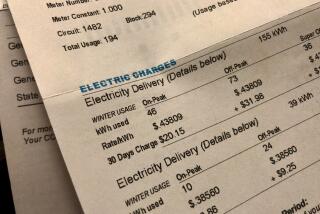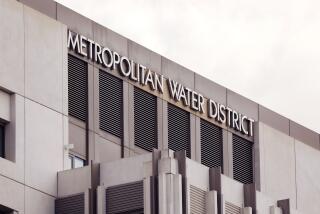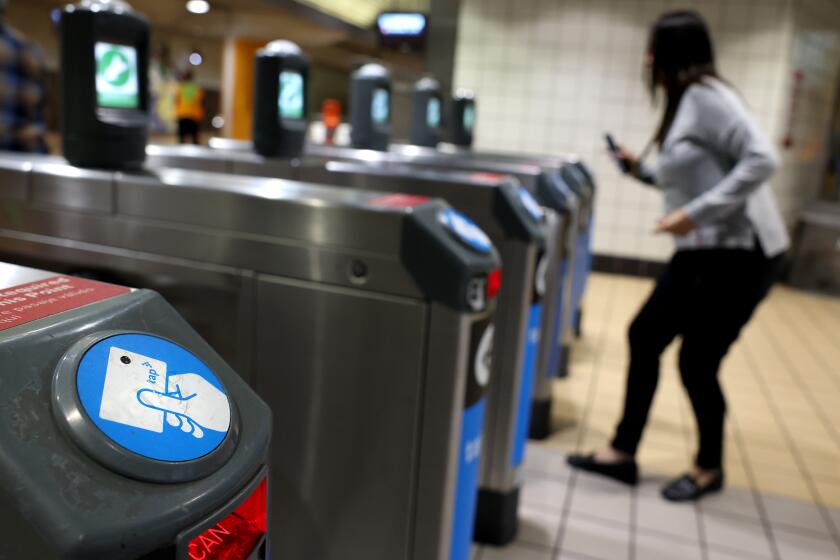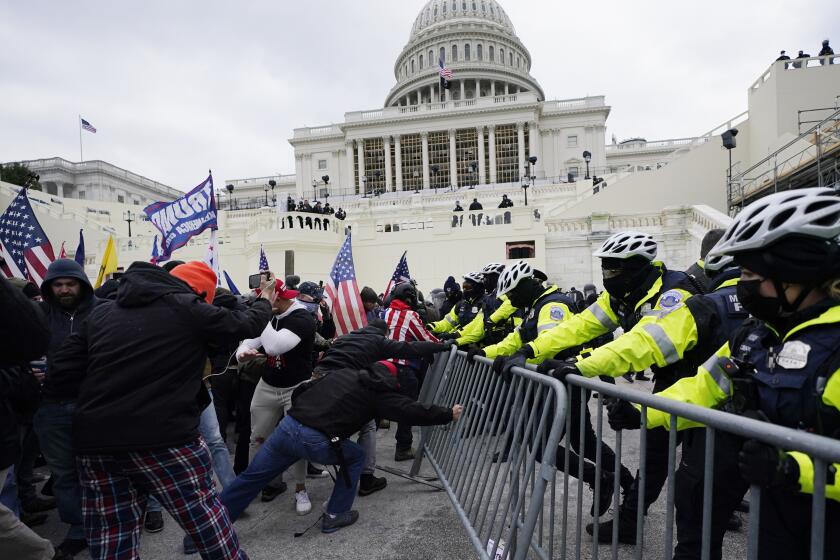A loose rein on the DWP
The Department of Water and Power wanted to raise rates, supposedly to cover the higher costs of buying water, generating electricity, updating rapidly aging equipment and complying with new environmental regulations. Many Los Angeles residents believed that rates were really rising to cover increasingly extravagant utility employee salaries and benefits and flabby management overhead. Elected officials and DWP managers were in thrall to the union, and their word could not be trusted.
So ratepayers planned to get themselves an independent advocate to check into rate hike requests and tell us whether they are legitimate. Voters adopted Charter Amendment I in March — nine months ago — by an overwhelming 77.9%. So now we have an independent advocate mulling the latest rate hike request, right?
Wrong. The ballot measure was not, after all, put together by citizens. It was wrapped in a veneer of community demand but was crafted by members of the City Council to be certain that it met their goals: to shield them from accountability to both the public, which does not like rate increases, and the International Brotherhood of Electrical Workers Local 18, which funds campaigns and does not like elected officials or anyone else tinkering in department affairs that the union has mastered. The result was predictable. The council has avoided approving rate hikes until the ratepayer advocate is in place, but has dragged its collective feet in setting up an appointment process and has yet to fully define the job. The ultimate loser: DWP customers, who will be stuck with even bigger bills if incremental hikes aren’t approved now.
An advocate should have been in place this summer to study requests by DWP General Manager Ron Nichols for a 15.3% increase in water rates and a 16.8% increase in electricity rates, phased in over three years, beginning in November. Meanwhile, even more pressing is the need for a separate 5% increase in water rates to meet drinking water standards imposed by state and federal law. Failure to put those increases in place soon will mean the utility will face huge fines, which would ultimately cost ratepayers more than the proposed hikes would.
In addition to being badly needed, this water quality increase would have a negligible impact on consumers — because water rates are lower than they have been in quite a while thanks to last year’s large snowpack and the relative abundance now of cheaper water.
The Board of Water and Power Commissioners meets next week to consider the emergency water increase and a similar electricity rate hike. The commissioners would be wise to approve the increases, which have been vetted and agreed to even by some of the utility’s most vocal critics. With luck, council members will then overcome their fear of their own shadows and will accept the increases, and step up the process for getting the voters’ oversight reforms in place for the heftier rate hikes the utility has requested.
More to Read
A cure for the common opinion
Get thought-provoking perspectives with our weekly newsletter.
You may occasionally receive promotional content from the Los Angeles Times.






